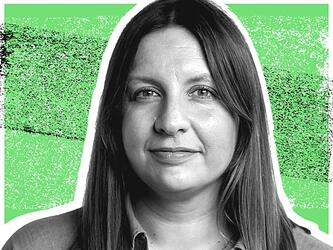Mental health conditions rising across England, finds study

Findings from the Adult Psychiatric Morbidity Survey (APMS), commissioned by NHS England, said that 22.6% of adults aged 16 to 64 were identified with a common mental health condition, such as depression and anxiety.
The prevalence of mental health conditions increased from 18.9% in 2014 and 17.6% in 2007, according to the research, with prevalence higher in women than men at each point.
The study said that 25.8% of young adults aged 16 to 24 were identified with a common mental health condition in 2023/24, up from 17.5% in 2007.
Lifetime non-suicidal self-harm more than doubled from 3.8% in 2007 to 10.3% in 2023/24, while post-traumatic stress disorder (PTSD) was more commonly reported among younger adults and those experiencing socioeconomic disadvantage.
Use of mental health treatment has increased, with 47.7% of adults with symptoms of common mental health conditions now report receiving treatment, compared to 39.4% in 2014 and 24.4% in 2007.
Terry Brugha, professor of psychiatry at the University of Leicester, said: “It’s vitally important we understand who is most likely to develop a disorder and who is most likely to access support for this so that we can begin to tackle the issues and fill in the gaps.
“For years mental health was seen as a stigma, but now that’s been broken down – we’re much more aware that we can and need to look for help. This survey will help by looking at contributory factors and by measuring trends over time.”
Sally McManus, senior research fellow at NatCen and professor of social epidemiology at City St George's, University of London, said: “We need to support effective and healthier ways of coping with distress. Ethnic inequalities persist and, in this survey, those identifying with mixed, multiple and other ethnicities emerged as having some of the worst mental health outcomes. This group had especially high rates of PTSD and self-harm.
“The study also shows that ethnic inequalities in treatment receipt persist among those with symptoms, with people identifying as Black or Asian less likely to get treatment.”
Dr Zoe Morgan, research psychologist at the University of Leicester, added: “Common mental health conditions were associated with living in the most deprived areas, having problem debt, and being unemployed or economically inactive with prevalence higher in the most deprived fifth of areas ( 26.2%) than in the least deprived fifth of areas ( 16%).
“These findings demonstrate a clear association between economic hardship and mental health problems.”

We hope you enjoyed this article.
Research Live is published by MRS.
The Market Research Society (MRS) exists to promote and protect the research sector, showcasing how research delivers impact for businesses and government.
Members of MRS enjoy many benefits including tailoured policy guidance, discounts on training and conferences, and access to member-only content.
For example, there's an archive of winning case studies from over a decade of MRS Awards.
Find out more about the benefits of joining MRS here.













0 Comments